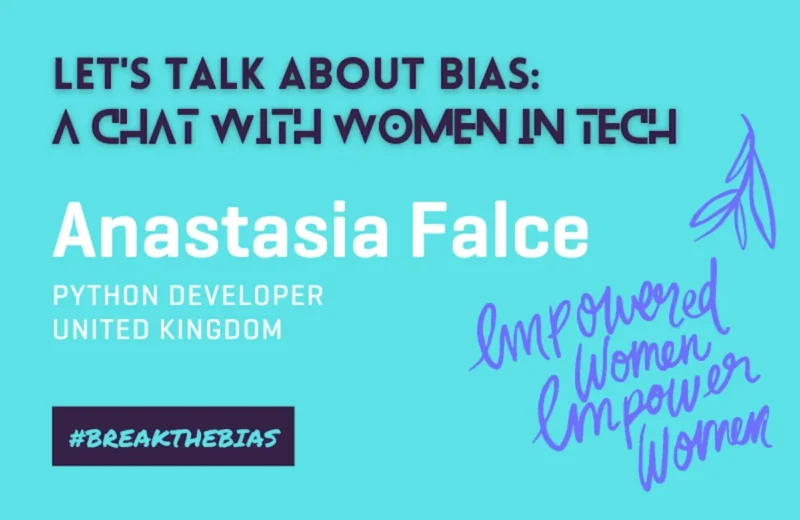Victoria Wall has founded both a highly successful recruitment business and a cutting-edge leadership consulting business, with expertise in developing investment judgment, risk management, and emotional intelligence. She is passionate about confidence and its power on mental wellbeing in the workplace. In her leadership consulting business, Victoria leads a team of psychologists and coaches with a focus on training leaders and CEOs in how to perform better in their roles, run their business with empathy and implement a scientific and structured approach to strategic decision making.
Here, Parallel talks to Victoria about her work on confidence, her perspective on how employers can support women’s health in the workplace and why equity is such an important issue in the workplace.
Can you tell us about your work on confidence, and how it relates to equity in the workplace?
Many people don’t really appreciate how critical confidence is to success. It can have a subtle and pervasive influence on our entire lives. When we talk about equity, people feeling like they can take advantage of the opportunities that they have, it’s often a sense of self-doubt or sense of low self-regard that will get in the way of doing things – such as confidently negotiating a pay rise.
In my experience, I’ve seen a trend for women’s confidence levels to be affected by things like imposter syndrome, perfectionism and lower risk appetite. While imposter syndrome shouldn’t be mainly a female issue, it is. What I see with women in the workplace is they have pushed themselves and they’ve got themselves into the job and the first thing the inner dialogue says is: “How the hell have I got here?” “Do I deserve it?”. It’s more helpful in that situation to change that inner dialogue: “OK, here’s the job. What do you expect from me in the first three months? What are my core tasks that I need to deliver on?”
Confidence is about keeping our self-regard and self-belief. One thing that I think women who are struggling with confidence levels should be doing is writing a list of everything they have achieved or learnt on a quarterly basis. This could even be built into performance tracking in industry. By reflecting on questions like: “How have I helped?”, “How do I contribute?” or “How do I feel valued?”, we can steadily increase our confidence level.
And what about perfectionism?
Perfectionism really is one of the most common things that gets in the way of female confidence in the workplace. We can suddenly find ourselves in a situation where we are trying to deliver on a set of expectations that we’ve created, which have not actually been defined by the company – and as soon as you start setting the bar up there, you’ll find your boss or your colleagues measuring you on that bar.
Another big thing within confidence is a fear of failure or low risk appetite. I find that women typically adjust away from having a high-risk appetite. They’re not as willing to fail as easily and then pick themselves up. I would coach women with issues around fear of failure, and the key is to set realistic goals and expectations, and then be very good at managing others into that expectation.
Some key stats and figures:
- For every 100 men who are promoted from entry-level roles to manager positions, only 87 women are promoted (Women in the Workplace 2022, McKinsey)
- Women leaders are leaving their companies at the highest rate we’ve ever seen: for every woman at the director level who gets promoted to the next level, two women directors are choosing to leave their company (Women in the Workplace 2022, McKinsey)
- Research shows that in order to apply for a job women feel they need to meet 100% of the criteria while men usually apply after meeting about 60%.
- Women are 16% less likely than men to apply to a job after viewing it (Gender Insights Report 2019, LinkedIn)
- Women apply to 20% fewer jobs than men (Gender Insights Report 2019, LinkedIn).
When it comes to women’s health and wellbeing in the workplace, and what it means for equity, what is your perspective on the challenges that women are currently facing?
I think that there is a lot more awareness about these challenges now than when I entered the workforce. There is a much more open dialogue specifically around pregnancy, fertility challenges and maternity leave laws.
In this country, we have a new law around parental leave where partners can share each other’s maternity and paternity leave packages, regardless of gender. A lot of companies are moving away from using terminology like “maternity” or “paternity” leave to “parental” leave, which is a step in a positive direction. But still, people are reluctant to lean into the new government guidelines around parental leave as much as they could, largely because of stereotyping. That needs to change, and it’s for leaders to facilitate a shift in culture around this.
"I also think there’s a responsibility for women, particularly women leaders, to take a bit of risk to share their story."
What does equity mean to you, specifically with regards to women’s health?
Equity is about recognising that people have different circumstances and therefore need different resources and opportunity to achieve an equal outcome. That’s why in the education system we consider specific individual needs to give that child the same opportunity, whether it’s financing or additional 1:1 support. If someone is blind or deaf, a workplace would give that employee a toolkit to succeed within those parameters. So, what does equity look like for a female employee who is struggling with her pregnancy or going through the menopause, as so many women do? To what degree do we support them give to provide them with an equal opportunity to perform?
Even in just the last five years, I see much more open conversations around pregnancy or miscarriages in the workplace. I personally know women who have felt confident to speak openly with their bosses or teams about receiving IVF treatment. They feel more comfortable to communicate their difficulties, to say “this is going to have a really big hormonal impact on me” or “I may not be as fun to work with” – conversations like this feel more normal than before.
When it comes to conversations around menopause, I think we’re massively behind the curve. I think it’s a difficult issue because you will always have some women who have sailed through it, some who didn’t even know it was happening to them and some who really struggle. People often go into the perimenopause without even knowing it. Silence can be really unhelpful. I know one woman was going into work and seeing clients and then suddenly started having hot flashes, and was thinking, “Wow, am I having a panic attack?!” Until we start having these open conversations, we won’t get close to developing a protocol around supporting people who experience the menopause in the workplace.
Why is this discussion around equity such an important issue for workplaces?
In the simplest form, equity is about creating a fair opportunity with fair compensation regardless of gender.
Beyond that, I believe it starts with “women supporting women in the workplace” and setting an example to each other by sharing their experiences and stories in an open manner to set the path for change. We need the women who are telling these stories to be credible as well, who have experienced similar situations that any woman in the workplace could experience.
Now, more than ever, there is a need for improved productivity in the workplace to get economies back on track. We need to welcome a diversity of perspectives, create a stable and happy workforce and a better quality of life. Ensuring that women have an equal part to play in our economy can only be realized when there is a community of supporters and mentors who can pave the way for those women. A community that tells women: “It’s ok, I’ve been through this before, and this is what I learned.”
When I was in my 20’s, I didn’t tell anyone at work that I was pregnant. Unfortunately, I had a miscarriage and ended up in hospital. But somehow, I found myself back at work the next day – I was standing up and pitching to a client only a day after I left the hospital. I just thought to myself: “Right, just be brave… get on with it.” I think back to that time and wish that I had shared what I was going through with my manager and been given the support I needed.
This kind of experience has empowered me to be different in how I run my business, in how I advise clients and how I manage my team. When my employees have health challenges I give them as much time off as they need. I hope my female team members feel able to share their pregnancy with me in the first trimester so that I can practice ‘equity’ – this is about creating that psychological safety. They feel valued, and they trust that sharing their health information won’t be seen as a weakness.
How can we empower women to put these topics on the agenda with managers to drive change?
Empowering women to overcome these challenges requires equal pay for work of equal value, the company endorsement of women supporting women, investment in a work environment that works for women, promotion of a culture supporting open communication and engagement of men in the dialogue.
I think it’s worth thinking about and asking your peers: “Is anyone willing to share problems that they have? With periods, endometriosis, fertility, menopause? What does that feel like? How do you manage that?” It’s all about sharing, as well as educating and supporting.
I also think there’s a responsibility for women, particularly women leaders, to take a bit of risk to share their story. Because how can people know otherwise? We bring our whole selves into work and that includes our bodies and our health. If women need support, they should be able to find it in their workplace.
What practical things should employers be doing to support women’s health and wellbeing and create more inclusive environments?
There should be management training into understanding individual team members’ needs and issues, and that goes into their physical and mental health. I think that managers now play a role and have a social responsibility when it comes to managing people – to be managers of all people, taking it back to equality and equity.
Whatever practical actions companies take; they should definitely look into things like:
- Assessing the reality for women through 1:1 catch-ups, reviews and audits, with a pay and perception audit, for example, and address areas where additional support can be provided.
- Providing access to female wellbeing checks if the company budget allows.
- Stimulating openness with a recurring “women’s circle” meeting.
- Reviewing any negotiation policy.
- Ensuring recruitment from a wider talent and age pool.
- Ensuring women’s voices are heard, especially from senior female leaders, including by providing private and discreet ways for them to voice their opinions.
- Making flexible working an important part of work policy.
- Providing training and family-friendly policies, such as parental policies.
- Using senior women as role models and mentors.
To find out more about Victoria Wall and the work that she does, you can visit VWA Consulting here.







